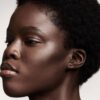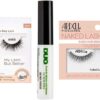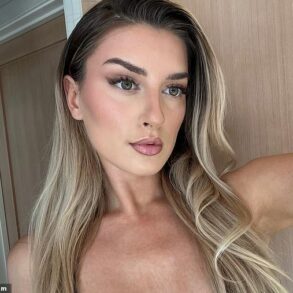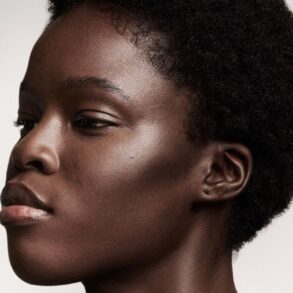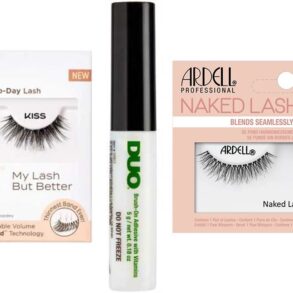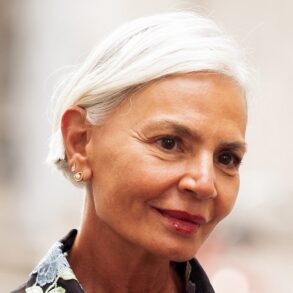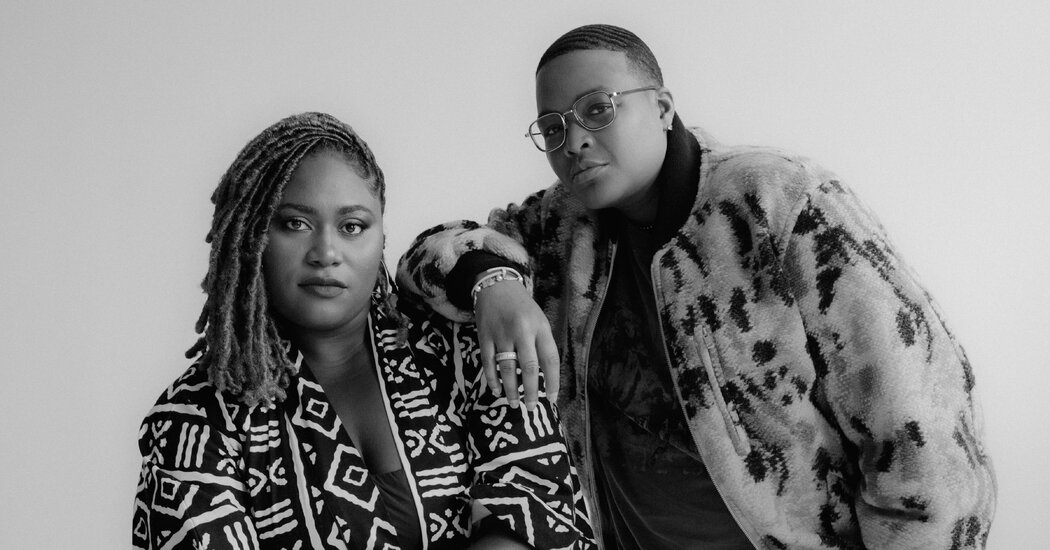
Two creative people in two different fields in one wide-ranging conversation. This time: the actress and the comedian.
Viewers first saw the actress Danielle Brooks as Taystee, the smartest and funniest of the prisoners on “Orange Is the New Black,” the incarceration dramedy that began in 2013 and ran for seven seasons on Netflix. This month, she’ll appear in “The Color Purple,” the second film adaptation of Alice Walker’s 1982 novel, this one based on the 2005 Broadway musical it inspired. Brooks’s character, Sofia, forced to work a grueling job as a maid for a white political family in early 1900s Georgia, was portrayed by Oprah Winfrey in Steven Spielberg’s 1985 adaptation; Brooks, 34, a Juilliard School-trained actress who was raised in South Carolina, played her in the musical’s 2015 revival. That production was Brooks’s Broadway debut; last year, she starred alongside Samuel L. Jackson in a revival of August Wilson’s “The Piano Lesson” (1990).
The comedian Sam Jay, who grew up in Boston and whose humor Brooks has long admired, recently released her first HBO special, “Salute Me or Shoot Me.” Jay, 41, spent years doing stand-up in Los Angeles before joining the writers’ room of “Saturday Night Live” in 2017. She left the show after three seasons for two series, “Pause With Sam Jay” (2021) and “Bust Down” (2022), both of which she helped create and starred in, and which highlight her frank, anecdotal style. This past October, the two gathered in a photo studio in downtown Manhattan to discuss acting, impostor syndrome and learning the importance of asking for what they need.
T: Many stage shows that perform well are rumored to get adaptations that never materialize — but this one did, and quickly. Is that just the power of the film’s producer Oprah Winfrey?
Danielle Brooks: I think for Oprah it’s making sure the story continues to have a life — that it lives through generations.
Sam Jay: You shot in Georgia, right? I always wonder about Black people shooting these period films where they have to go back to being downtrodden, sweaty Black. How do you snap out of that and then just, like, go chill at Checkers?
D.B.: It was tough but at times cool because you’re in it. It’s the difference between doing it on a stage versus on an actual plantation. It did get real at times: All I could think about was how many of my people were hung from those trees. I had the responsibility of making sure I told this very beloved story as honestly as I could to represent those people who aren’t here.
S.J.: Are they going to let the main characters Shug and Celie be gayer? Because they’re gay as hell in the book, and they really skipped over that in the first movie. When I read the book … it wasn’t just some crush; they were together.
D.B.: You’re going to be satisfied. You get that, which I was happy about.
S.J.: I feel like that was a part of the story Walker was trying to tell.
D.B.: I got to meet her on set, and my close friend Corey Hawkins, who plays Harpo [Sofia’s husband], took a video of it, which was great because for me it starts with her. My whole pop-off — my Broadway career — started through her book.
S.J.: These Broadway runs. …
D.B.: It’s crazy. I imagine there was a lot of preparation before doing your HBO special, though, too. Do you remember how many shows you did before that?
S.J.: I did somewhere around 300 shows for a year and a half. I was maybe three or four months into touring when I bumped into Chris Rock. We had dinner and he was like, “I don’t do less than 250 shows before filming.” So I immediately called my agent and got more on the books. Then I’m feeling myself because I’m, like, 20 shows away from my 250 and Chris goes, “Yeah, 50 more shows. I’m not telling you to do anything I wouldn’t do!” But I watch that special now and think, “Ah, growth.”
D.B.: That’s how I feel with “The Color Purple.” When I did the Broadway show, I had so much anxiety and was going to therapy because I felt like an impostor. Cut to five years later, doing the movie, I felt such comfort. I might have done 500 shows, now that I think about it. One year, eight shows a week — someone do the math — but I felt more confident, worthy enough to portray this character.
S.J.: Confidence, I’ve come to feel, is just knowledge. The more information you have, the more confident you are. When I look at my special, I can tell I was free.
D.B.: I always thought you were free, every time I’ve watched you. I’m pretty picky about comedians; I don’t laugh at a lot of stuff. I’m the person in the audience the comedians make fun of, like, “Look at this bitch not laughing,” and then I’m still not laughing.
S.J.: I think only you know what you’re hiding. In real life, I’m very silly and physical when I’m talking but, for some reason, when I’m onstage, I’m like, “You ain’t no clown! You don’t need to be doing all that flailing around.” It’s dumb because it’s comedy, but it was really me just being afraid to let that side out.
D.B.: Did you ever feel, when you were starting out, that there was a comedian you wanted to style yourself to be like?
S.J.: I don’t think I wanted to be like anyone, but you get ideas from others. Chris Rock was the first comic I saw who made sense to me. I grew up in a “Def Comedy Jam” era, with Black and white comedy being very separate. I love that era, but that’s not how my brain works. I’m not good at roasting. I’d seen George Carlin, too, and that seemed very white. But Chris was this hybrid I thought was cool.
D.B.: I feel like some people won’t give you the real — where you think, “I can’t believe they just said that” — but also make you examine why you think the way you do. That’s so important in any medium, and the point of what we do, so we can see ourselves. Comedy’s always been that easier pill to swallow, for the truth. So when somebody can do that, not just make you laugh but question why you think about, you know, disabled people in some way, or why you don’t like to use the N-word, I find it important. What I’ve always enjoyed is that you don’t hold back. In a way, I can be guarded, but you’re very, “No, let’s talk about it.”
S.J.: It comes from a kind of twisted place of my mom passing away [in 1998, from lupus] and me accepting the idea of mortality, that you don’t live forever. I moved out when I was 16 — I’ve had no parent longer than I’ve had a parent. I sometimes don’t remember my mother’s face, but I remember how she made me feel. That’s all that remains. I remember the lessons she taught. So it’s just about trying to be intentional in every interaction.
D.B.: I think that’s the same for me … being more guarded because my mother is a minister. She’s very much, “Be careful what you do; what you say is going to affect you till you die.” I love my mom, I respect her 100 percent, but I have to live for me because it’s my life. But I want to hear about your experience booking “S.N.L.” I want to be on that show so bad!
S.J.: I get this call from my manager, “Will you audition for ‘S.N.L.’ tomorrow?” I’m like, “Do they really want me? I’m not doing a character.” I didn’t want to set myself up for failure. I audition, then get a call saying, “We know you auditioned for the cast but how would you like to come be a writer?” I hang up and I’m like, “Damn, OK, too ugly for TV.” But I needed to step into something new at that point in my career. I’m all about going toward things that you’re afraid of, so I said yeah.
D.B.: Do you ask for what you need when you’re doing a show, or do you settle a bit?
S.J.: I’m going to ask for what I need.
D.B.: I think about a lot of women in comedy who aren’t matching up to what men are making or getting, in terms of perks. It’s just not happening. I was watching Luenell’s comedy show, and she was talking about being on a plane with comedians, and the men are flying first class and she’s in coach.
S.J.: At first, I was absolutely scared to ask. I didn’t know what was OK.
D.B.: You do have a core group of people that you can go to where you can say, “Let’s be real: How much do you make on this?”
S.J.: I wish it was stronger, but I do feel like I got a couple of people where we try to be pretty transparent about that stuff. That’s the age-old trick where you have a 9-to-5 and they’re like, “You guys aren’t allowed to talk about this.” And it’s like, “Yeah, so you can keep us all poor.”
D.B.: That’s been one of the best parts of having a friend group in the industry, our transparency. We’re not gonna brag about our contracts, but if you want to know, we’ll lay it out so we can come up together. You don’t know what you don’t know. That’s what drives me crazy: when you find out someone had a personal chef or a trainer, and you’re like, “Nobody told me that was a possibility, and I needed it more than they did.”
S.J.: I think working behind the scenes, working on “S.N.L.,” knowing the lengths they’ll go to make sure the talent is OK, now when I’m being the talent, I’m like, “Do that for me.” It sometimes feels bitchy, but that’s just a stigma in our heads as women.
D.B.: There are a lot of ways we should be given more respect. I think about hair and makeup: Why is it so much to ask for someone who can actually do my hair, rather than teaching somebody to do it? And why is it so wrong to ask for somebody who can do my face rather than having to come to them with the products I use?
S.J.: The ask, at its core, is coming from a place of having to build up the confidence to do this work. That’s the thing that gets misconstrued when Black people say they want Black people in these spaces. The reverse racism crowd sees that as wanting everything to be all Black, when, no, it’s because we know we need this stuff.
D.B.: I don’t want to go to a costume fitting and have to give them a list of shops and places to get my clothes. On “The Color Purple,” our hair and makeup departments were phenomenal — the wigs matched; the lace was lacing.
S.J.: You know “The Color Purple” is coming correct.
T: How do you work comedy into your performance of Sofia, who’s one of the most visibly oppressed, but also most joyous, characters in the film?
D.B.: Sometimes, when people go through so much, they don’t want to dwell on that; they’re longing for joy and laughter. She’s somebody who tries to stop generational curses, whether that be through an abusive marriage or abusive parents. She’s trying to bring her community to the right path. She might not have all the skills to do so — she might use her fists or her mouth — but, at her core, she’s not looking for a fight. She’s looking to have a great day.
This interview has been edited and condensed.
Danielle Brooks: Fashion: ObyDezign. Hair: Tish Celestine at La Belle Boutique, NYC. Makeup: Renee Sanganoo using Nars at the Only Agency
Sam Jay: Hair and makeup: Merrell Hollis
This post was originally published on this site be sure to check out more of their content.


